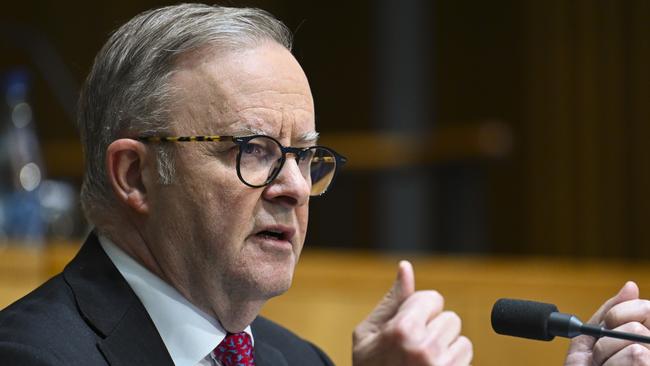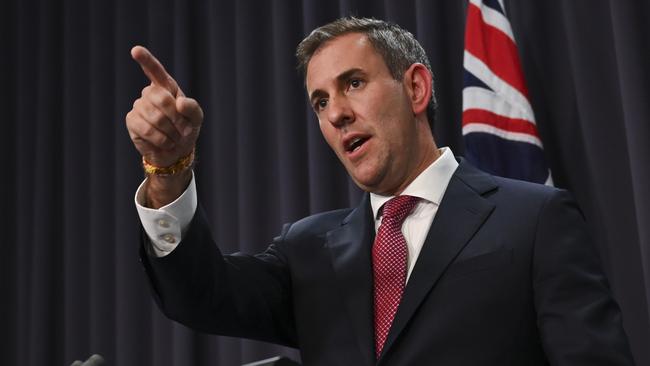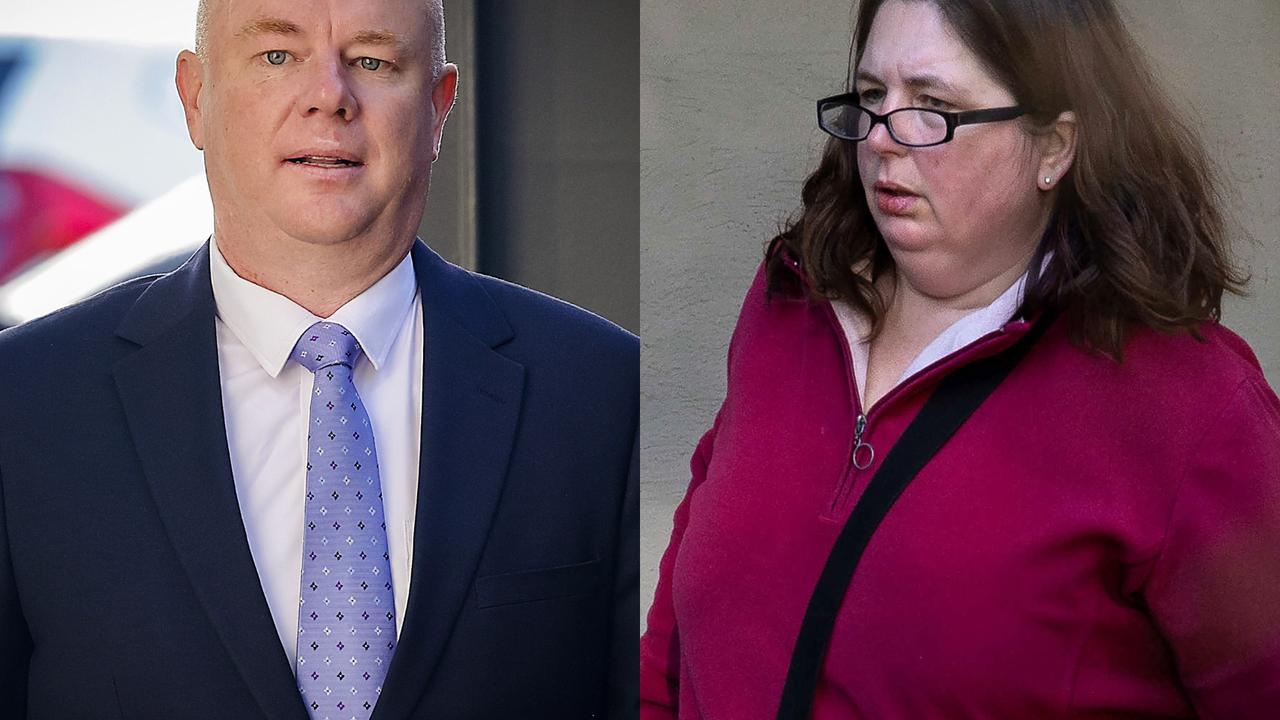Gains wiped: Anthony Albanese’s budget ‘fix’ derailed by deal with premiers
The GST and health deal the Prime Minister struck with the states is set to virtually erase $30bn in NDIS savings promised in the May budget.

Anthony Albanese’s plan to repair the nation’s finances has been derailed, with the GST and health deal the Prime Minister struck with the states set to virtually erase $30bn in NDIS savings promised in the May budget.
As a leading independent economist accused the government of lacking courage to follow through on its flagship fiscal repair measure, NDIS Minister Bill Shorten suggested any savings from curbing growth in the scheme would need to be reinvested in other disability services for it to remain sustainable over the long term.
“There’s enough money in the scheme and we can afford to moderate the amount (annual pace of growth) going from 15 per cent down to about 8 per cent,” Mr Shorten told the National Press Club on Thursday.
“Could we reinvest some of those savings in a system outside the scheme so the scheme doesn’t essentially become the golden ticket? It’s either that or nothing.”
Mr Shorten on Thursday released the long-awaited NDIS review, which reframed disability support in Australia to ensure the $42bn-a-year scheme was limited to the most profoundly disabled.
For others with lower levels of disability, the review calls on the states and federal government to bolster mainstream services in areas like public education, housing and transport.
With almost 150,000 children aged under 9 are on the NDIS, most with a diagnosis of autism, the review recommends more investment in “foundational supports” such as early intervention for children with less severe developmental disabilities.
NDIS eligibility needed to shift away from being based on a medical diagnosis to someone’s “functional impairment”, which means that a diagnosis of a condition such autism will not guarantee access of the scheme.
Mr Shorten said the federal and state government had “a common interest and a shared responsibility to secure a lasting and constructive outcome”.
Premiers this week sealed a deal that provided $24.9bn in additional federal money in exchange for contributing more to funding the NDIS, which is projected to cost taxpayers $100bn a year by 2032. This included extending the GST arrangements for a further three years beyond their current expiry in 2026-27, at an estimated cost to the commonwealth of $10.5bn in the second half of his decade.
Independent health economists blasted Mr Albanese’s additional $13.2bn pledge to top up public hospital funding from 2025 as a Band-Aid solution that would not address systemic problems in healthcare delivery.
Jim Chalmers labelled the agreement an “absolute triumph”, but economist Chris Richardson criticised the deal, saying the enormous NDIS savings promised by the Treasurer in this year’s budget would no longer be delivered.

“Back in May, the government announced that it was going to make the largest ever cut to a single program in the history of the commonwealth,” Mr Richardson said. “My hope was the (government’s) reforms would finally address the bad incentives in the NDIS that lead to poor outcomes for both the disabled and for taxpayers. But doing that would require really difficult decisions to be made. Or, as I described it on budget night, ‘it’s not really a policy until someone is pissed off’.
“As of yesterday, we finally know who should be pissed off – it’s taxpayers. That’s because the (government), having promised much, seems to have delivered only modest savings.”
Streamlining delivery of the NDIS was projected in the May budget to save $15bn over four years to 2026-27, while a further $59bn would be saved from 2027-28 to 2033-34 by capping growth in the fund to 8 per cent a year. That was a promised total of $74bn in savings over 11 years, of which $30bn was banked into the budget by the end of this decade, Mr Richardson said.
“It turns out the key to saving $30bn of federal spending on the NDIS by 2030 was to pass costs back to the states, but at the same time to boost state funding by an estimated $25bn,” he said. “So we didn’t get courage; we got accounting.”
On hospital funding reforms agreed at national cabinet, health experts expressed concern the extra money from the commonwealth did not tie the states to any tangible improvements in patient outcomes.
Government sources said the new funding cap, which is not finalised, would be several percentage points higher, and states and territories would be provided with a first-year catch-up premium to clear elective surgery backlogs.
Health economist Stephen Duckett said the federal government’s funding commitment lacked clear guardrails with states’ public health services not forced to adhere to performance targets such as improving hospital wait times or surgery blowouts.
“My problem with the new agreement is it’s unclear what the states are committing to,” Professor Duckett said. “It’s all good for the commonwealth to put in $15bn in extra funding but what is the outcome, does this mean that I won’t have to wait for my hip replacement or that waiting times will be cut down? The announcement has a set of weasel words from the states saying we are going to continue to worry about this, but nothing written down.”
Grattan Institute health program director Peter Breadon said Mr Albanese had weakened the commonwealth’s power to negotiate stronger health reforms with the states down the track.
Mr Breadon said the announcement was “a very big investment” but the cap removal and the overhaul to federal funding did nothing to address the structural problems within the healthcare system. He called for the government to show national leadership to address critical and expensive problems such as chronic disease, GP shortages in rural areas and providing care in non-clinical settings.
“The funding is not tied to outcomes and I think making very significant new investments is a good opportunity to negotiate challenging reforms and we haven’t seen evidence of that within health,” Mr Breadon said.
“The commonwealth has less leverage to negotiate reforms than they had before the meeting … there is a risk they’ve now got a weaker hand to negotiate reform and accountability.”







To join the conversation, please log in. Don't have an account? Register
Join the conversation, you are commenting as Logout